At Experion, we believe that trust is the heartbeat of healthcare, which is why every solution we build prioritizes security, compliance, and human-centered care. From secure infrastructure to user-first design, our HIPAA-compliant solutions are built to safeguard what matters most: people, privacy, and peace of mind.
Table of Contents
- What is HIPAA Compliance?
- Key HIPAA Compliance Requirements
- Need for HIPAA Compliance Software
- Challenges in Maintaining HIPAA Compliance for Software Development
- Essential Features of HIPAA Compliance Solutions
- Types of HIPAA Compliant IT Solutions
- Best Practices for Developing HIPAA Compliance Software
- Real-World Examples and Case Studies (Experion)
- Future Trends in HIPAA Solutions
- How to Choose the Right HIPAA Compliance Software
- How Experion Can Offer Support in Delivering HIPAA Compliance Software
- Conclusion
- Key Takeaways
What is HIPAA Compliance?
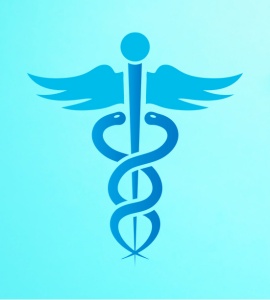 HIPAA, short for the Health Insurance Portability and Accountability Act, isn’t just a piece of legislation; it’s the backbone of digital trust in the healthcare industry. Enacted in 1996, this U.S. federal law sets strict guidelines to ensure the confidentiality, integrity, and availability of sensitive patient information, commonly referred to as electronic protected health information (ePHI).
HIPAA, short for the Health Insurance Portability and Accountability Act, isn’t just a piece of legislation; it’s the backbone of digital trust in the healthcare industry. Enacted in 1996, this U.S. federal law sets strict guidelines to ensure the confidentiality, integrity, and availability of sensitive patient information, commonly referred to as electronic protected health information (ePHI).
At its core, HIPAA compliance is about safeguarding health data from unauthorized access, breaches, and misuse. It demands that every entity handling ePHI, whether it’s a hospital, insurance provider, pharmacy, or even a mobile health app developer, adopt rigorous security and privacy protocols. And it’s not just limited to healthcare giants. Software development firms, cloud storage providers, and analytics vendors who partner with covered entities must also uphold these standards.
HIPAA compliance ensures that patients remain in control of their personal health information in a digital era where data is constantly moving across networks, devices, and platforms. From encrypting medical records to regulating access and ensuring timely breach notifications, compliance is the legal line of defense, and a commitment to ethical, secure care.
It’s no longer a matter of ticking regulatory checkboxes. For modern healthcare organizations, HIPAA compliance is a competitive differentiator and a foundation for building long-term trust with patients, partners, and regulators alike.
Key HIPAA Regulations
HIPAA is structured around several core rules that define how patient health data must be handled. Each rule serves a distinct purpose in ensuring confidentiality, integrity, and accountability in the healthcare data ecosystem.
- Privacy Rule
This rule outlines how protected health information (PHI) can be collected, used, and disclosed. It sets clear boundaries on patient consent, permissible disclosures, and an individual’s right to access their health records. The Privacy Rule ensures that patients stay in control of their personal health data, promoting trust and transparency between care providers and recipients. - Security Rule
Focused on electronic protected health information (ePHI), this rule defines the administrative, physical, and technical safeguards organizations must implement to secure data. From encrypting files and restricting access to enforcing password policies and network protections, the Security Rule is the operational backbone of HIPAA compliance in a digital landscape. - Breach Notification Rule
This rule mandates timely and transparent communication in the event of a data breach involving unsecured PHI. Organizations must notify affected individuals, the Department of Health and Human Services (HHS), and in certain cases, the media. The rule holds entities accountable while empowering patients to take protective action if their data is compromised.
Compliance is not a checkbox, it’s your foundation.
Let’s build it right. Connect with us today.
Who Needs to Comply?
HIPAA compliance applies broadly across the healthcare and health IT ecosystem. It is not limited to traditional providers but extends to anyone who creates, receives, maintains, or transmits ePHI.
- Healthcare Providers
This includes hospitals, clinics, physicians, dentists, therapists, pharmacies, and any other entity involved in direct patient care. - Health Plans
Insurance companies, HMOs, Medicare, Medicaid, and employer-sponsored health plans must comply to ensure coverage-related data is protected. - Healthcare Clearinghouses
Organizations that process nonstandard health information into standard formats, such as billing or eligibility data, are subject to HIPAA rules. - Business Associates
Any third-party service provider or vendor that interacts with ePHI must also be compliant. This includes cloud service providers, mobile app developers, software vendors, IT consultants, billing companies, and even email or document storage platforms used by healthcare clients.
At Experion, our role as a trusted digital transformation partner in healthcare means we take on the responsibility of HIPAA compliance from day one, ensuring our software solutions meet the highest standards of privacy and security.
Key HIPAA Compliance Requirements
Ensuring HIPAA compliance is not a one-time task, but a continuous commitment to secure data handling and operational integrity. Below are the essential pillars of a robust HIPAA compliance strategy:
- Risk Assessment and Management
Every organization dealing with ePHI must routinely conduct risk assessments to identify vulnerabilities in their systems and processes. These assessments help uncover potential threats and allow the implementation of proactive measures to reduce risks before they escalate into compliance violations or data breaches. - Data Encryption
Encryption ensures that even if ePHI is intercepted, it remains unreadable to unauthorized users. HIPAA mandates encryption both at rest (when data is stored) and in transit (when data is transferred across networks), providing an essential layer of security against external threats. - Access Controls and Authentication
Not everyone should have access to all health data. Role-based access controls and strong authentication mechanisms, such as multi-factor authentication (MFA), help ensure that only authorized personnel can access specific patient records or system functions. - Audit Trails and Monitoring
Organizations must maintain logs of who accessed what information and when. Continuous monitoring and audit trails allow for real-time visibility into data activity, making it easier to identify anomalies and support incident response or compliance audits. - Data Backup and Disaster Recovery
Unforeseen events like cyberattacks, hardware failures, or natural disasters can jeopardize data availability. HIPAA-compliant systems must support automated, regular backups and have a disaster recovery plan in place to restore critical information quickly and accurately. - Network Security
Firewalls, intrusion detection systems (IDS), and secure network configurations are necessary to protect internal systems from external threats. Securing the network perimeter helps prevent unauthorized access and data exfiltration. - Endpoint Security
Devices such as laptops, tablets, and smartphones that access ePHI must be secured with tools like antivirus software, mobile device management (MDM), and remote wipe capabilities. Endpoint security protects the entire system by ensuring each access point is guarded. - Secure Data Transmission
All data exchanged across email, APIs, or system integrations must be transmitted using secure protocols such as TLS or VPNs. This prevents data leakage and unauthorized access during communication between systems or parties.
One platform, complete peace of mind.
Build it with us– secure, scalable, HIPAA-ready.
Need for HIPAA Compliance Software

In today’s digital healthcare environment, manual compliance is no longer feasible. HIPAA compliance software acts as a centralized command center, helping healthcare organizations and their partners automate the most critical aspects of compliance.
These platforms streamline processes like risk assessments, access control configuration, encryption enforcement, and breach monitoring. They also provide detailed audit logs and reporting capabilities, which are essential for passing compliance audits and responding to incidents.
By simplifying complex regulatory requirements into actionable, automated workflows, HIPAA compliance software empowers organizations to focus on patient care without compromising on data protection.
Challenges in Maintaining HIPAA Compliance for Software Development
Developing HIPAA-compliant software requires more than technical expertise, it demands a deep understanding of evolving regulations, security risks, and healthcare workflows. Below are some of the challenges developers face:
- Evolving Cyber Threats
The threat landscape is constantly shifting, with new attack vectors such as ransomware, phishing campaigns, and zero-day vulnerabilities emerging regularly. Software must be designed to withstand these evolving threats through continuous updates and intelligent threat detection mechanisms. - Complexity of Health IT Systems
Healthcare systems are rarely standalone. They often involve integrations with EHRs, billing platforms, third-party APIs, IoT devices, and analytics tools. This interconnectedness creates a sprawling digital ecosystem where securing every node becomes a daunting task. - Insider Threats and Human Error
Not all breaches are caused by external attackers. Accidental data exposure, weak passwords, or misconfigured access rights by internal staff are frequent causes of HIPAA violations. Addressing these requires both technical safeguards and ongoing training. - Third-Party Vendor Risks
Many organizations rely on third-party vendors for cloud services, billing, or communications. If these vendors fail to meet HIPAA requirements, the primary organization is still held liable. This makes vendor due diligence and Business Associate Agreements (BAAs) non-negotiable. - Mobile Device and Cloud Storage Risks
With the rise of telehealth and remote care, patient data is increasingly accessed via smartphones, tablets, and cloud-based systems. While these tools offer convenience, they also introduce new vulnerabilities, especially when devices are lost, stolen, or used on unsecured networks.
Essential Features of HIPAA Compliance Solutions
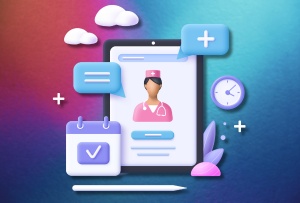 Robust HIPAA compliant software incorporates a suite of security, privacy, and operational features to meet the strict demands of modern healthcare regulations. Each component plays a critical role in safeguarding patient data while supporting scalability, usability, and performance.
Robust HIPAA compliant software incorporates a suite of security, privacy, and operational features to meet the strict demands of modern healthcare regulations. Each component plays a critical role in safeguarding patient data while supporting scalability, usability, and performance.
Data Encryption (At Rest and In Transit)
Encryption transforms sensitive data into unreadable code, making it inaccessible to unauthorized users. Whether the data is stored on servers or being transmitted across networks, encryption ensures that even if intercepted, the information remains protected. HIPAA compliance software must offer end-to-end encryption using standards such as AES-256 and TLS.
Secure Access Controls and Authentication
To prevent unauthorized access, systems must enforce layered access protocols. This includes password complexity policies, biometric logins, session timeouts, and two-factor authentication. The goal is to verify identities at every touchpoint and restrict system functionality based on clearance levels.
Audit Logs and Activity Monitoring
Detailed audit logs are essential for both internal governance and regulatory audits. These logs track user activity, login history, file access, configuration changes, and other events. Real-time activity monitoring adds an additional layer of security by flagging suspicious behavior before it escalates into a breach.
Automatic Data Backup and Disaster Recovery
Healthcare data must be continuously protected against loss or corruption. Automatic data backup systems create secure copies at regular intervals, while disaster recovery protocols ensure rapid restoration of operations in the event of cyberattacks, server failures, or natural disasters.
Business Associate Agreements (BAAs)
Every third-party vendor or service provider with access to ePHI must enter into a Business Associate Agreement. These legal documents ensure that vendors uphold HIPAA obligations, enforce security best practices, and accept liability in the case of a breach or non-compliance.
Secure Cloud Hosting and Storage
Cloud infrastructure must adhere to HIPAA guidelines, including access control, data segregation, and encryption. Leading cloud providers such as AWS, Microsoft Azure, and Google Cloud Platform offer HIPAA-compliant configurations, allowing organizations to leverage cloud scalability without compromising compliance.
Mobile Device Management (MDM)
As mobile devices become integral to patient care, managing them securely is critical. MDM solutions allow organizations to remotely wipe lost or stolen devices, enforce encryption, monitor usage, and prevent data from being transferred to unauthorized apps or networks.
Role-Based Access Control (RBAC)
RBAC ensures users can only access the information necessary for their job function. By assigning roles such as “nurse,” “billing staff,” or “administrator,” organizations can enforce data compartmentalization and minimize exposure to sensitive information.
HIPAA compliance starts with better engineering.
Let’s engineer it together, connect with our experts.
Types of HIPAA Compliant IT Solutions
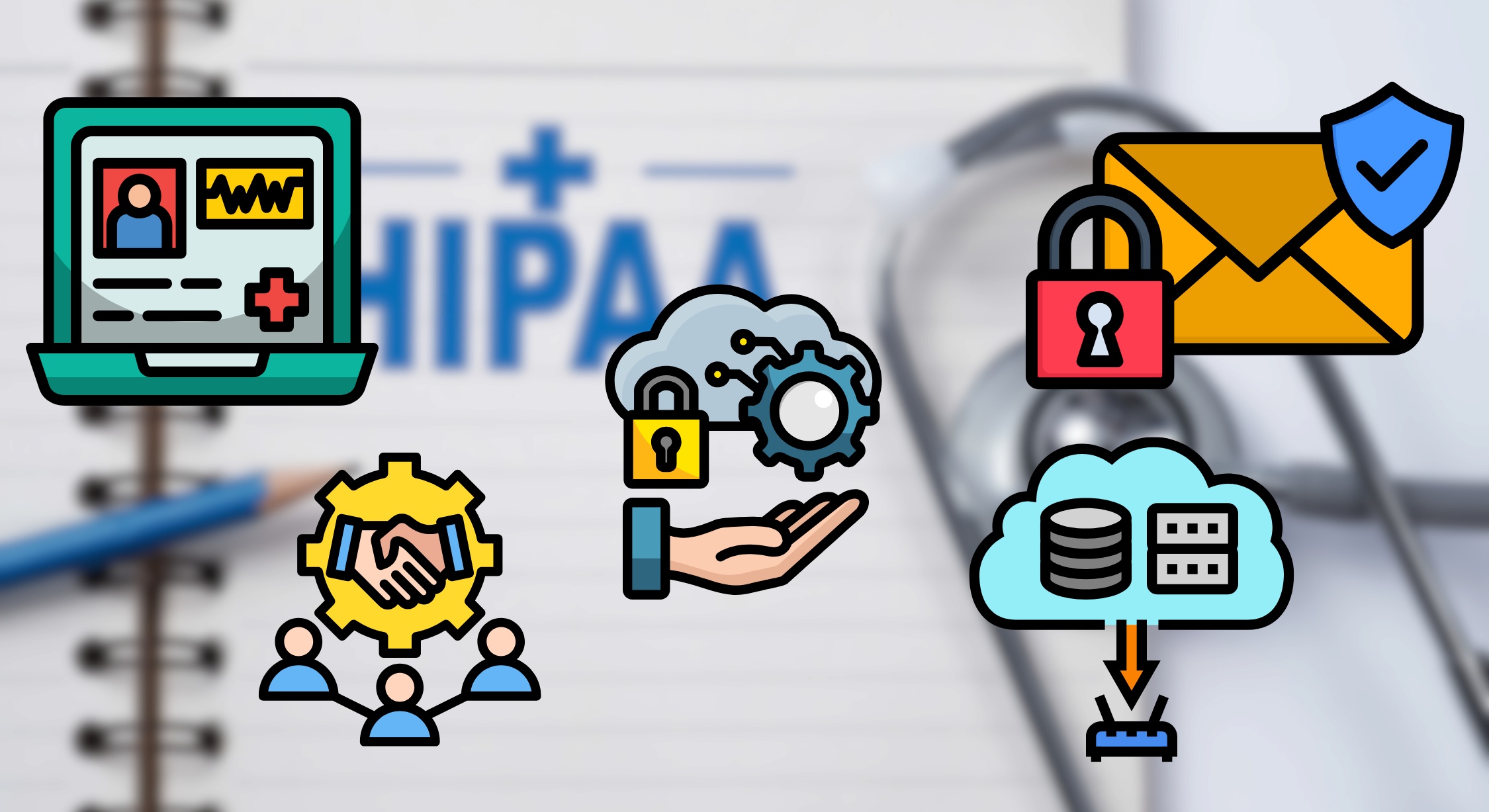
HIPAA compliant IT services extend beyond a single platform. A wide variety of IT solutions must be aligned with HIPAA standards to create an end-to-end secure healthcare ecosystem.
- Electronic Health Record (EHR) Systems
These systems serve as centralized repositories for patient data, including medical history, prescriptions, lab results, and imaging. HIPAA-compliant EHRs feature built-in audit logs, secure access controls, and encrypted data exchange capabilities. - Secure Communication Tools
Messaging platforms, telemedicine tools, and video conferencing apps must support encrypted communication between patients and providers. Features such as secure login, session encryption, and message retention policies help ensure both privacy and compliance. - Cloud Infrastructure Providers
Public cloud platforms such as Amazon Web Services (AWS), Microsoft Azure, and Google Cloud Platform (GCP) offer HIPAA-ready environments. These infrastructures provide tools for managing encryption, access controls, auditing, and compliance reporting. - Healthcare CRM and Patient Portals
These tools support patient engagement, appointment scheduling, reminders, and secure messaging. HIPAA-compliant CRMs ensure that all patient-facing communications are encrypted and stored securely, with appropriate user access restrictions. - Managed IT Services and Cybersecurity
Organizations often partner with managed service providers to handle IT operations, security monitoring, incident response, and compliance audits. These services bring specialized expertise in identifying vulnerabilities, maintaining uptime, and enforcing HIPAA-aligned practices across systems and devices.
Experion crafts HIPAA compliant IT solutions tailored to the specific needs of digital health innovators. Our development teams integrate regulatory safeguards from the ground up, ensuring that compliance and innovation move forward together without compromise.
Best Practices for Developing HIPAA Compliance Software
Developing HIPAA-compliant software requires a structured, security-first approach that integrates legal, technical, and operational safeguards into every stage of the software development lifecycle. The following best practices help ensure compliance while enabling scalable and future-ready digital health solutions:
- Conducting a Gap Analysis
Before building or modifying any system, it is crucial to identify areas of non-compliance. A comprehensive gap analysis evaluates existing infrastructure, workflows, data handling processes, and security policies to determine where improvements are needed. This diagnostic step ensures that development efforts are focused, measurable, and aligned with HIPAA standards. - Choosing HIPAA-Certified Vendors
Third-party tools and services, such as cloud storage, video conferencing APIs, or analytics engines, must also meet HIPAA requirements. Partnering with HIPAA-certified vendors ensures that security and privacy controls extend across the entire technology stack and reduces the risk of liability arising from vendor non-compliance. - Regular Training and Policy Enforcement
Human error is one of the most common causes of HIPAA violations. Regular training programs, combined with clearly documented policies, help employees understand their responsibilities in handling ePHI. Enforcing accountability through policy adherence, audits, and access reviews is essential for a compliance-focused culture. - Continuous Monitoring and Audits
Compliance is not a one-time milestone. It requires ongoing monitoring of systems for anomalies, breaches, and misconfigurations. Routine internal audits and penetration testing help organizations stay ahead of vulnerabilities and demonstrate diligence to regulators and stakeholders. - Updating Systems and Patches Regularly
Outdated software and unpatched systems create easy entry points for attackers. A disciplined approach to patch management ensures that known vulnerabilities are addressed promptly, reducing exposure to security threats and maintaining compliance posture.
Real-World Examples and Case Studies
Experion has worked extensively with healthcare innovators to build secure, scalable, and HIPAA-compliant digital platforms. Our domain experience and engineering rigor ensure that every solution is ready for the regulatory complexities of modern healthcare.
- HIPAA-Compliant EHR for a U.S. Telehealth Startup
Experion developed a comprehensive Electronic Health Record (EHR) system for a fast-growing telehealth provider in the United States. The platform featured secure video consultations, encrypted chat modules, and robust role-based access control (RBAC). By integrating automated audit trails and breach notification workflows, the client reduced their audit preparation efforts by 40 percent and scaled their operations to support a growing virtual care network. - Secure CRM for a Home Healthcare Provider
For a leading home healthcare company, Experion delivered a HIPAA-compliant CRM platform designed to streamline patient onboarding and communication. The solution included encrypted document uploads, secure messaging between staff and patients, and real-time analytics dashboards. Audit logging and access control features ensured transparency and compliance across every user interaction.
These case studies highlight Experion’s ability to blend regulatory assurance with technical sophistication, delivering solutions that meet the highest standards of security and usability.
Future Trends in HIPAA Solutions
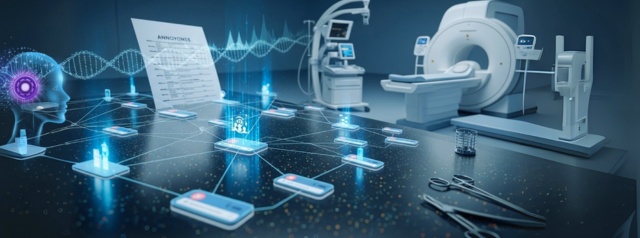
As healthcare continues to digitize and diversify, HIPAA solutions are evolving to meet new technological demands. The following trends are shaping the next wave of compliance innovation:
- AI and Machine Learning in Healthcare IT
Artificial intelligence is increasingly used to detect threats in real time, flag unusual behavior, and optimize system security. Machine learning models can also predict potential compliance risks by analyzing patterns across access logs and user activity, helping prevent incidents before they occur. - Integration of IoT and Wearables
From smartwatches to remote patient monitoring devices, the Internet of Things (IoT) is generating valuable health data outside traditional care settings. Ensuring HIPAA-compliant data collection, transmission, and storage across these devices will become a critical focus, especially as remote care continues to expand. - Blockchain for Patient Data Security
Blockchain technology offers the potential for tamper-proof patient records, with immutable transaction logs and decentralized control. This can enhance trust, reduce fraud, and improve data sharing transparency across healthcare networks. - Automation of Compliance Monitoring
Modern HIPAA software is leveraging automation to streamline repetitive tasks such as access reviews, log analysis, and policy checks. AI-powered compliance monitoring tools provide continuous oversight, reduce manual effort, and improve response times during audits or incident investigations.
These advancements point to a future where compliance is embedded seamlessly into technology infrastructure, allowing healthcare organizations to innovate with confidence while maintaining rigorous data protection standards.
How to Choose the Right HIPAA Compliance Software
Choosing the right HIPAA compliance software is a strategic decision that affects not just legal adherence but also patient safety, data governance, and organizational efficiency. The ideal solution should align with your current workflows while being flexible enough to scale as your operations grow.
- Evaluate Scalability and Integration Capabilities
Your compliance software should be able to grow with your business. Whether you are expanding to new locations, launching new services, or integrating with third-party systems, the platform must support seamless interoperability without compromising security. - Ensure Support for Multiple Regulatory Frameworks
Many healthcare organizations operate in a global or multi-jurisdictional environment. Look for solutions that align with not just HIPAA but also other frameworks such as HITECH, GDPR, and SOC 2. This ensures comprehensive compliance and future readiness. - Prioritize User-Friendly Dashboards and Reporting
A good compliance platform should empower users, not overwhelm them. Visual dashboards, customizable alerts, and intuitive reporting features make it easier to track risks, access logs, manage incidents, and prepare for audits. - Verify Third-Party Certification and Audit Histories
Ask vendors to provide proof of HIPAA compliance certifications and independent audit reports. A strong track record demonstrates the vendor’s credibility and commitment to maintaining the highest security standards.
How Experion Can Offer Support in Delivering HIPAA Compliance Software
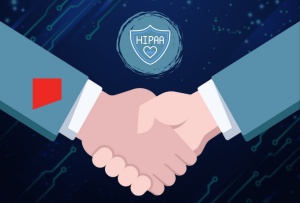 At Experion, we understand that regulatory compliance is not just about ticking boxes. It is about building trust, securing patient lives, and enabling innovation in one of the most complex industries in the world.
At Experion, we understand that regulatory compliance is not just about ticking boxes. It is about building trust, securing patient lives, and enabling innovation in one of the most complex industries in the world.
From the initial discovery workshops to deployment and post-launch audits, Experion provides comprehensive support throughout the development lifecycle. Our healthcare domain expertise ensures that every feature we build meets both clinical and compliance requirements. We use proven security architectures, conduct rigorous testing, and collaborate closely with our clients to ensure that their HIPAA obligations are seamlessly integrated into their technology platforms.
Whether you are a digital health startup launching a new product or a large enterprise modernizing legacy systems, Experion delivers custom-built, HIPAA-compliant solutions that are robust, scalable, and future-ready.
Conclusion
HIPAA compliance is not just a legal obligation, it is the foundation of ethical healthcare technology. In an age where digital transformation is reshaping patient experiences, compliance ensures that privacy, safety, and trust remain at the core of care delivery.
The right HIPAA compliance software helps healthcare organizations manage risk, automate safeguards, and stay ahead of evolving regulatory landscapes. With careful planning, the right technology partner, and a proactive security mindset, compliance becomes a driver of growth rather than a barrier.
Key Takeaways
- HIPAA compliance protects patients’ personal health information and strengthens trust in digital care.
- Software solutions that support HIPAA requirements simplify governance, automate workflows, and improve breach response capabilities.
- Scalability and integration readiness are essential when choosing a compliance platform.
- Compliance software should support multiple standards such as HIPAA, HITECH, and GDPR to ensure complete regulatory alignment.
- User-friendly dashboards, alerts, and logs enable faster decision-making and smoother audit preparation.
- Third-party vendors must demonstrate proof of compliance through certifications and independent audits.
- Regular employee training and monitoring reinforce software safeguards and minimize human error.
- HIPAA compliance is a shared responsibility between healthcare organizations, software providers, and their partners.
At Experion, we do more than write secure code. We build the digital trust infrastructure that allows healthcare providers to innovate with confidence and compassion.

